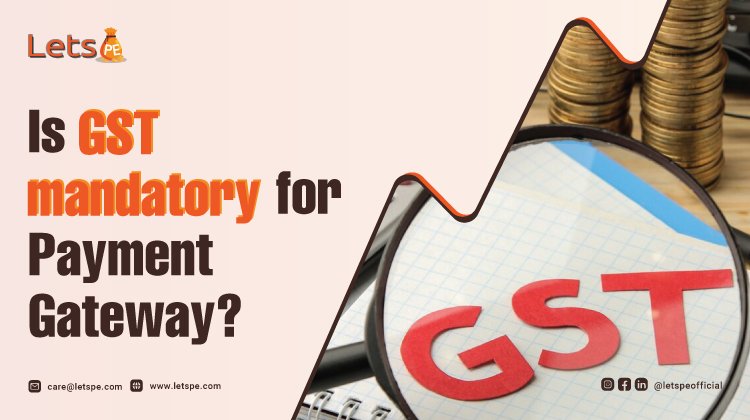Is GST mandatory for Payment Gateway
GST is not compulsory for using a payment gateway. Payment gateways serve as mediators between clients, businesses, and financial institutions in online transactions. payment gateways themselves aren't generally needed to collect and remit GST

Goods and Services Tax (GST) has become an important part of tax systems in many countries, aimed at clarifying and unifying the taxation process. As e-commerce and online deals continue to grow, questions occur regarding the role of payment gateways in GST compliance. In this blog, we will explore whether GST is mandatory for payment gateways and how it impacts businesses and individualities.
Knowing the GST
GST is a utilization tax raised on the sale of goods and services. Its purpose is to replace multiple circular taxes and produce a unified tax structure. Still, the perpetration of GST can differ significantly from one country to another, making it vital to understand the specific regulations in your governance.
GST for Payment Gateways
Payment gateways serve as mediators between clients, businesses, and financial institutions in online transactions and undertsnad GST mendatory for letspe payment gateway. They make easy, secure and effective electronic payments, enabling businesses to accept payments for their products and services. But are payment gateways themselves needed to collect and revoke GST?
What Payment Gateways Do

In many countries, payment gateways aren't directly responsible for collecting and transmitting GST. Rather, their primary function is to reuse payments securely. When a guest makes a purchase online, the payment gateway ensures that the transaction is completed easily, but it's generally not involved in calculating or collecting GST.
GST Responsibility Lies with Merchants
The liability for collecting and remitting GST generally falls on the businesses or individualities that use payment gateways to sell goods or services. These merchants are needed to calculate the applicable GST quantum based on the transactions and the applicable tax rate and also add it to the total cost paid by the client. The dealer is answerable for reporting and remitting the collected GST to the tax council.
Crucial Points to Consider
- Jurisdictional Differences: GST rules differ from one country or region to another. It's important to understand the specific GST laws and conditions in your governance, as they may alter significantly.
- GST Registration: Businesses improved certain development beginning may be required to register for GST. Registration liability differs, and businesses must ensure they misbehave with the enrollment rules in their governance.
- GST Rates: Different orders of goods and services may have different GST rates. Merchants must directly regulate the correct GST rate for their products or services.
- Compliance and Reporting: Accurate record-keeping and timely submission of GST returns are very important for compliance. Non-compliance can lead to penalties and some legal consequences.
- Professional Guidance: Given the complexity of tax laws, it's judicious for businesses to explore professional advice from tax experts or accountants to ensure they meet their GST scores.
Read in Detail - All You Need To Know About Online Payment Solutions
Conclusion
In summary, payment gateways themselves aren't generally needed to collect and remit GST. The liability for GST compliance generally lies with the businesses or merchants using these gateways to sell goods or services. It's important for businesses to be suspicious of the specific GST rules in their governance, directly calculate and collect GST, and maintain proper records to insure compliance. Exploring professional guidance can help navigate the complications of GST and taxation, helping businesses meet their scores while conducting online transactions through payment gateways.












